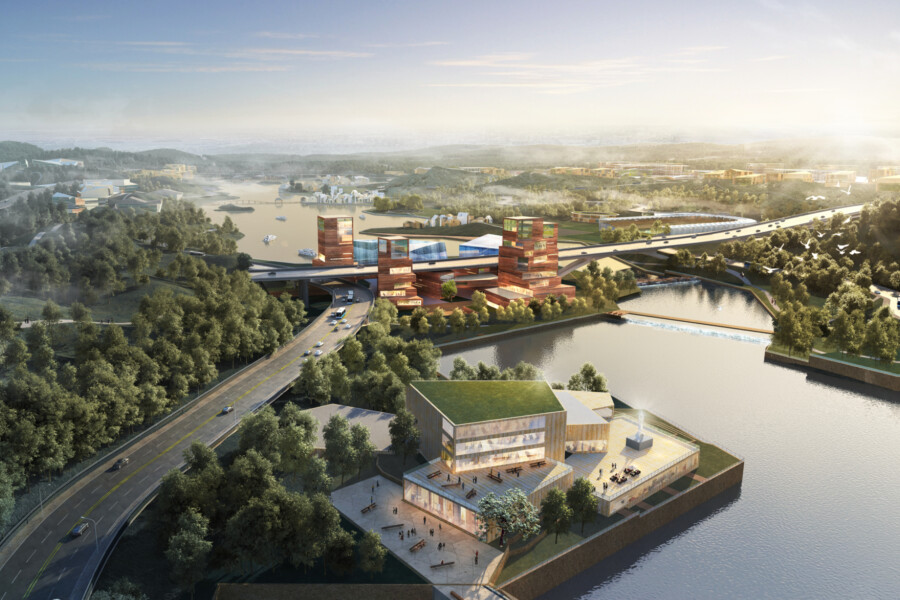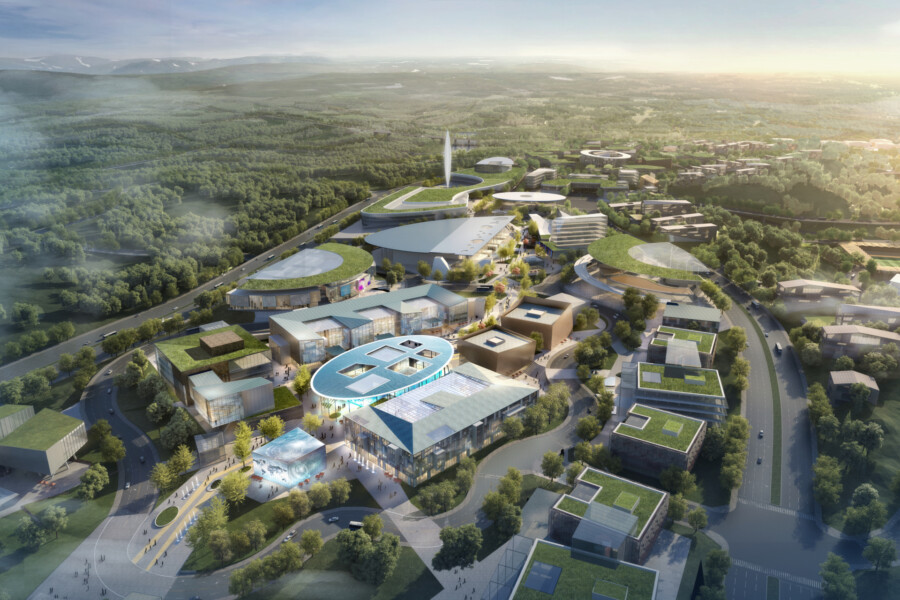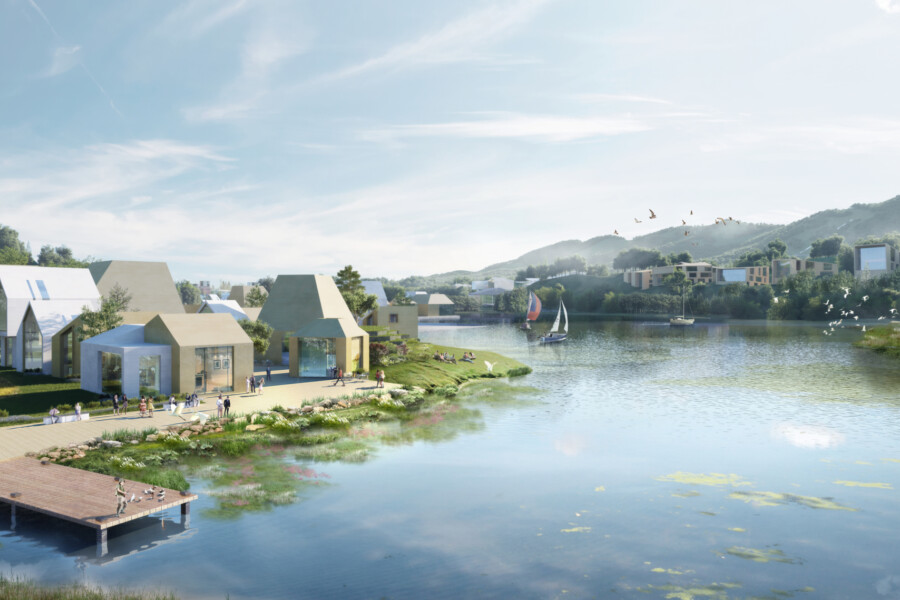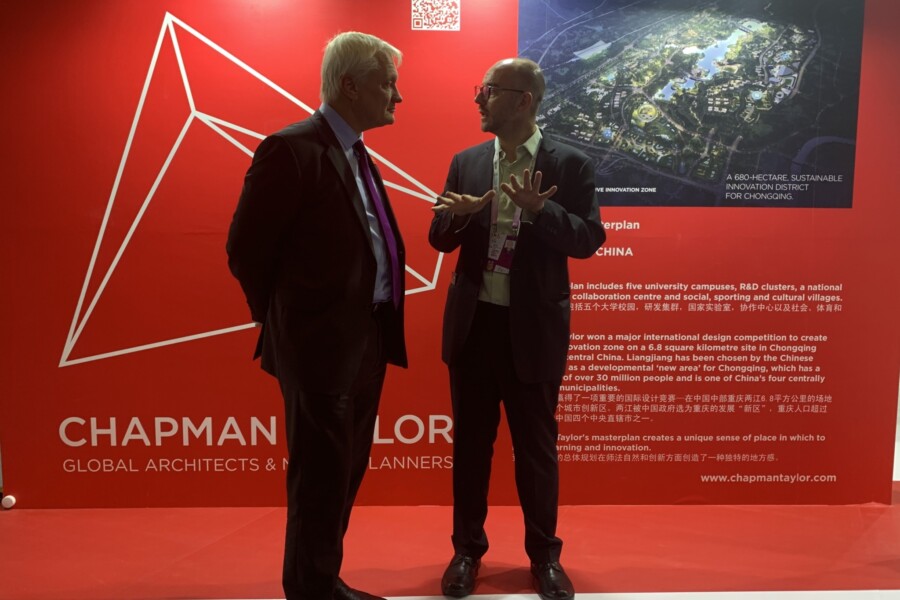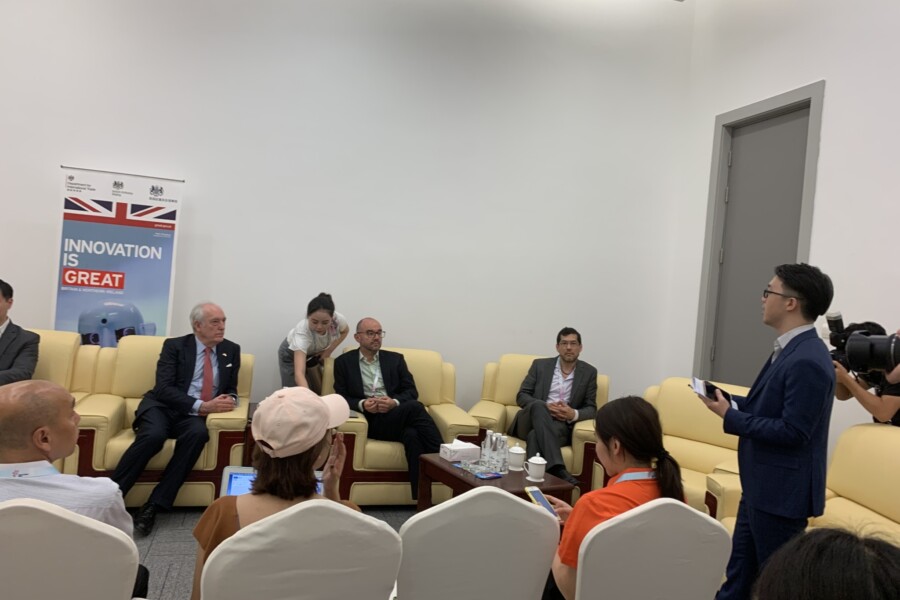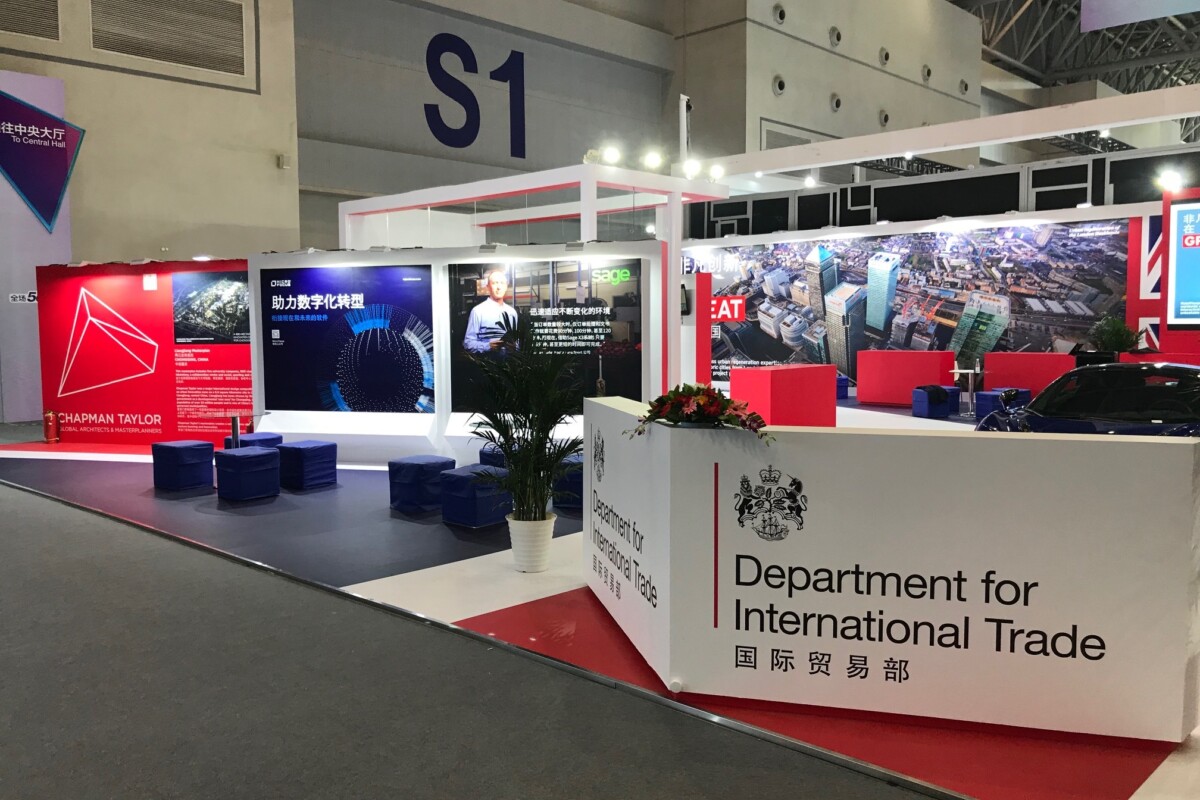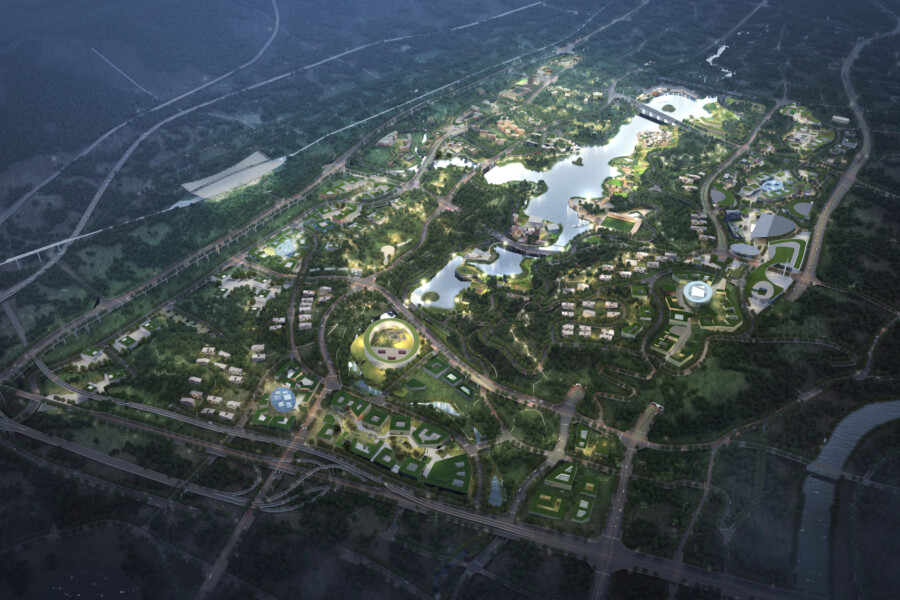
Chapman Taylor showcases design vision for Chongqing Liangjiang at Smart China EXPO
A team from Chapman Taylor championed our smart city design vision for the Chongqing Liangjiang urban innovation zone at Smart China EXPO, which took place from 25-29 August.
The major national property industry event, in Chongqing, Central China, saw Chapman Taylor exhibit as part of the UK Department for International Trade delegation stand, as well as meeting important guests and speaking at packed meetings. The central focus of our attendance was on showcasing our design for a new, sustainable and technologically advanced university and R&D district in the rapidly developing Liangjiang district of the city.
Smart China EXPO brings together industry leaders from across the world every year to discuss and showcase developments in smart technology and its applications within an overall theme of “empowering economy, enriching life”.
During the event, Chapman Taylor Main Board Director Chris Lanksbury met Liu He, Vice-Premier of China’s State Council. Chris signed a strategic cooperation agreement with the project client and was interviewed about the Liangjiang masterplan vision for several national and local television channels and newspapers. He also met UK trade minister Graham Stuart MP and gave a series of speeches, including to the inaugural UK-China Future Intelligence Forum on the topic of ‘regeneration and reinvention’.
Chapman Taylor won a major international design competition to create the urban innovation zone on a 680-hectare site at Chongqing Liangjiang. Liangjiang has been chosen by the Chinese government as a developmental ‘new area’ for Chongqing, which has a population of over 30 million people and is one of China’s four centrally governed municipalities.
Chapman Taylor’s masterplan concept is based on the integration of the beautiful natural environment with new technology facilities, and creates a connected series of five university campuses surrounded by R&D clusters. The organic form of the campuses follows the undulating contours of the existing site, producing a dynamic combination of urban spaces.
The valley formed by the hills to the east and west perimeter of the site is to become a lake. At the northern end will be a national laboratory and the ‘Centre of Ideas’, a place which is the collaborative heart of the masterplan. The south of the lake is surrounded by beautiful landscape interspersed with social, sports and cultural villages, which are a contemporary interpretation of the traditional villages of the region.
The masterplan is a fully transit-orientated development and provides railway, metro, BRT, electric bus and water taxi connections throughout the site. Sustainability is embedded in the project, which is planned to be self-sufficient in energy needs – using solar, biomass and hydroelectric power sources, resulting in a saving of over 450,000 tons of CO² per annum.
